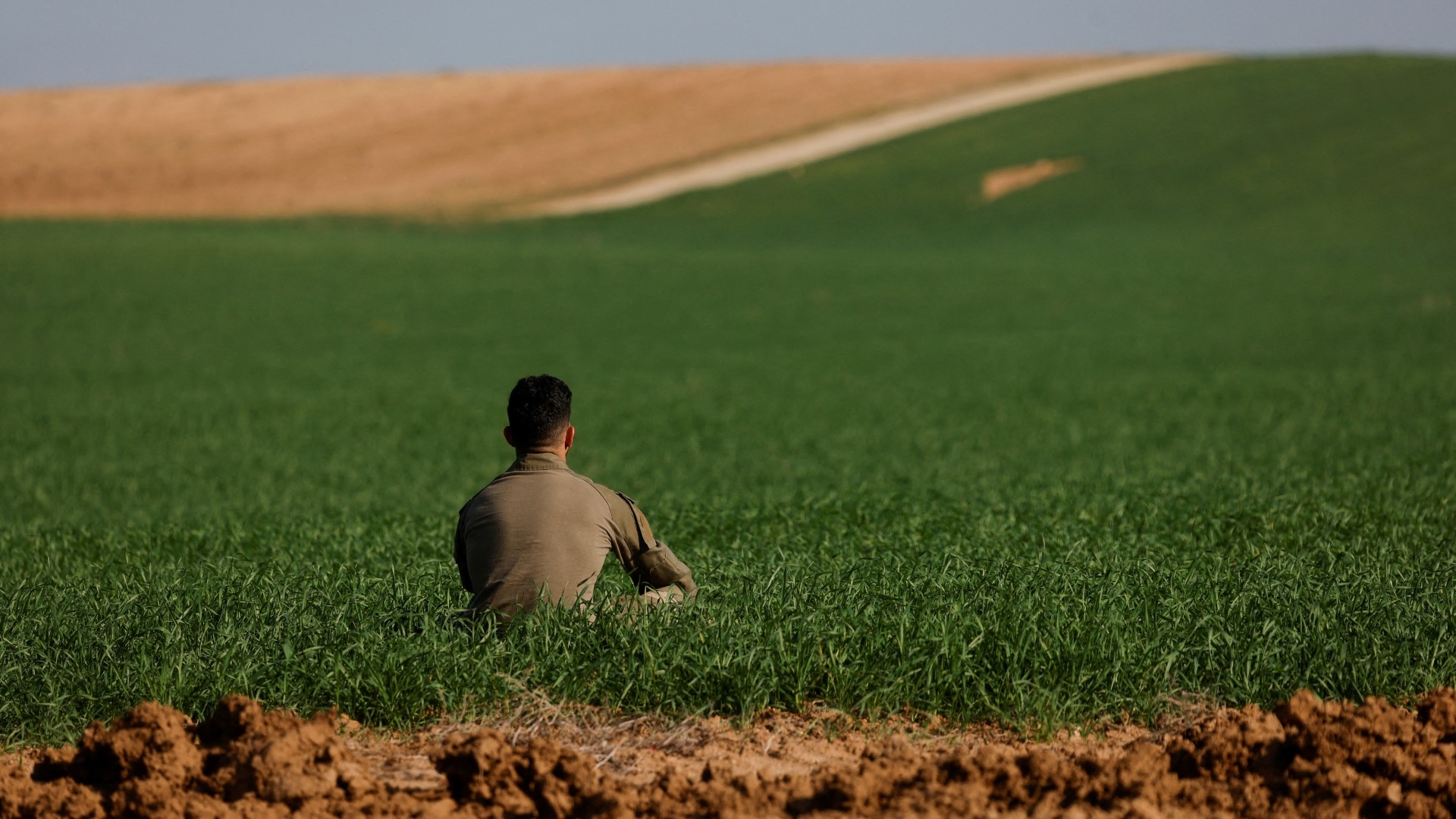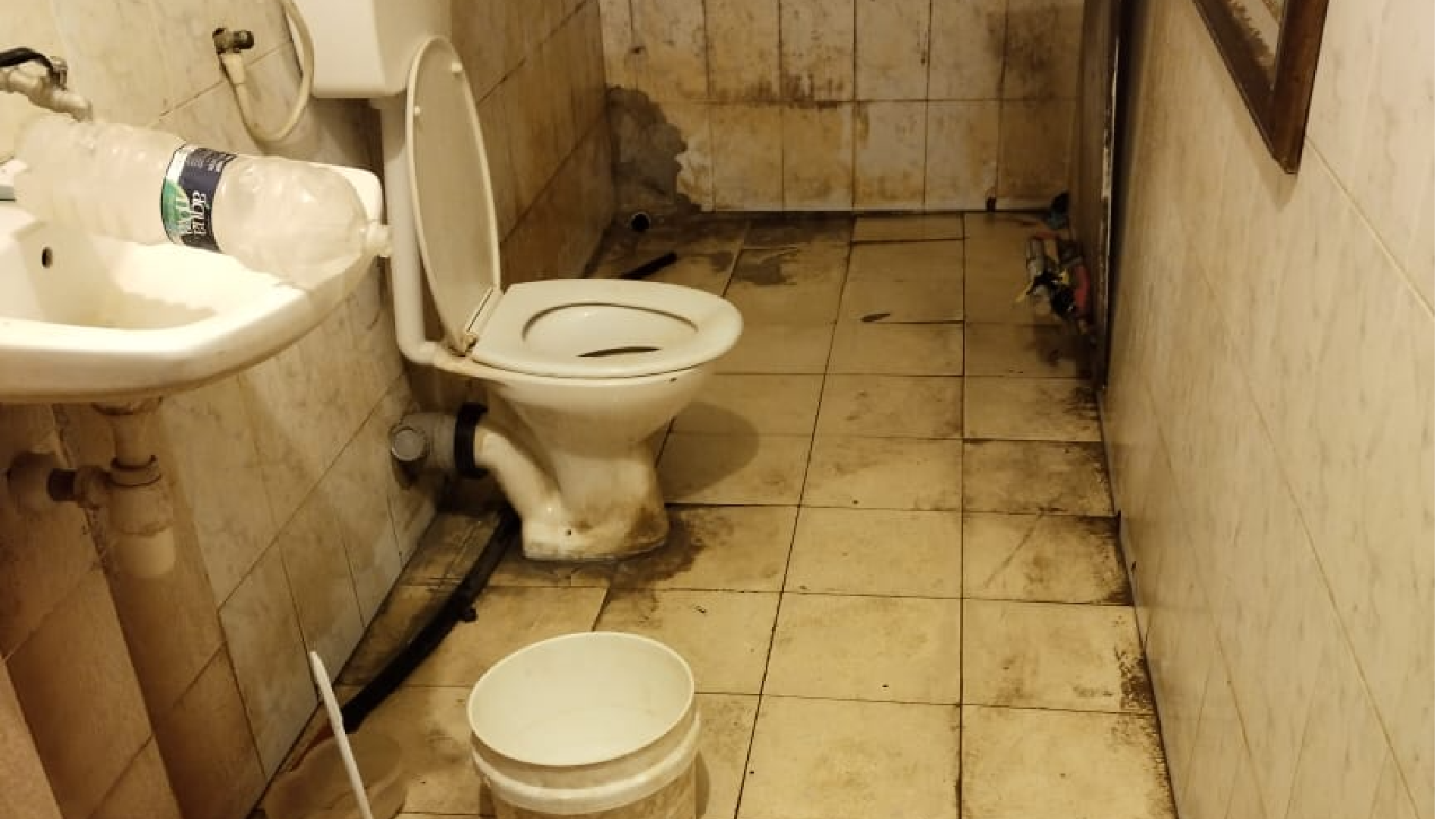
The death of an Indian worker in northern Israel this week has brought into the spotlight the risk faced by agricultural labourers – many of whom are migrants – on both fronts of Israel’s war on Gaza.
On Monday, an Indian man was killed and several other migrant workers were seriously wounded by anti-tank missiles fired from Lebanon, while cultivating an orchard in the northern town of Margaliot.
The man killed was identified by Indian media as Patnibin Maxwell. He had arrived in Israel from Kerala just two months ago. India has since urged its citizens to move to safer areas of Israel.
It was not the first incident of migrant agricultural workers being caught up in the conflict: 32 Thai farmers were killed and 23 taken captive during Hamas’s surprise attack on southern Israel on 7 October.
Since October, a mass exodus of Thai workers and a suspension of contracts for Palestinian farm labourers has left Israel’s agricultural sector in its worst-ever crisis, according to officials. New workers have arrived from other countries, like India, in an attempt to make up the shortfall.
History of farming along the border
Israel has a long history of employing agricultural workers along several frontiers, including near Lebanon, Jordan, the occupied Golan Heights and the Gaza Strip.
“The pattern of agricultural workers being close to borders is not new,” Matan Kaminer, a lecturer at Queen Mary University in London, told MEE. “It has to do with the long history of Zionism and the Israeli state.”
He said that agriculture has been used by Israel as a strategy of taking over land and extending frontier territories. Before the creation of the state of Israel in 1948, the bulk of this work was done by Jewish labourers.
In the decades after that, and especially following the 1967 Middle East war (when Israel occupied East Jerusalem, the West Bank, Syria’s Golan Heights, Gaza and Egypt’s Sinai), most of Israel’s agricultural workforce was made up of Palestinians.
That was because they were cheaper to employ, and more willing to do difficult jobs.
“These are jobs that Israelis have not been able to touch for decades, because it’s hard work at sub-minimum wage,” said Kaminer.
But in the early 1990s, after the First Intifada – or uprising – Israel decided to reduce its reliance on Palestinians working in agriculture. It signed an agreement with Thailand, with the goal of replacing Palestinians with Thai farm workers.
Kaminer said that to maintain its Jewish demographic balance, Israel ensured that Thai labourers’ contracts were only temporary, treating them akin to “guest workers”.
Many of them have faced discrimination and poor working conditions too, including receiving below minimum wage, occupational health and safety violations and sexual harassment.
There have also been concerns about their safety, particularly during bouts of conflict.
While some border farming areas, such as the Arabah region in the Negev desert near Jordan, are relatively peaceful, the Gaza frontier area has been dangerous for some time due to periodic rocket fire.
Thai workers ‘brought into war’
The agricultural lands near Gaza have come under attack from rocket fire during previous wars. In May 2021, two Thai workers were killed in a rocket attack.
Following the killing and abduction of Thai workers during the Hamas-led attacks in October, the Thai government flew 8,500 of its workers home.
Five of the 23 Thai workers taken prisoner by Palestinian groups are still believed to be held in Gaza.
“Israel has treated migrant workers as a neutral third party to war,” said Kaminer. “That’s all over now. The moment Hamas included Thai migrant workers on 7 October attacks, they became a side of the war.”
Yahel Kurlander, a sociologist at Tel Hai college in Israel, agreed.
“Israelis, Thais and students from Nepal… everyone was slaughtered,” she told MEE. “Everyone was under those attacks.”
In response to the attack, Israeli authorities suspended the contracts of all Palestinian workers from Gaza, and most workers from the occupied West Bank too.
To make up the shortfall, Israel has brought in workers from a number of countries, including India, Sri Lanka and Malawi.
Many of these new workers have faced a plethora of challenges since their arrival, including grave concerns about their safety.
“They told us they are… shocked about gaps between what they were promised and the realities,” Assia Ladizhinskaya, spokesperson for Kav LaOved, an Israeli NGO focused on labour rights, told Middle East Eye.
“Harsh work, long hours, poor accommodation, difficulty to communicate with employer: not everyone knows where to go with problems.
“They are working too close to the border and they are afraid,” she said, adding that Indian labourers had raised these concerns with the NGO before Monday’s attack on Margaliot.
‘Dangerous situation’
In the case of Indian workers, all of them have arrived on private contracts, with little oversight and protection of their rights.
“With bilateral agreements, like Thai workers, there is guidance and information. They have someone to call for help,” said Ladizhinskaya. “Private agreements… [are] less protected.”
Kurlander said that migrant workers’ precarious housing situation puts them at greater risk than Israelis in the border towns.
“Migrant workers are in a dangerous situation, more than Israelis, because of the lack of shelters inside the house,” she said.
While most people in areas close to live fighting, like Margaliot, have fled to safer areas, some have stayed behind to keep running the farms.
Ladizhinskaya said that even if they had access to shelters, those working in agricultural lands would not have enough time to flee following missile attacks.
“People shouldn’t be dying for Israelis to have fruit and vegetables,” she said.
source : middleeasteye




